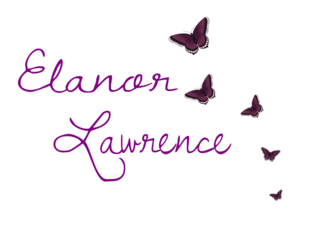 Lately, a lot of dystopian fiction has been flooding into the market. I think this is a good thing; I’ve never liked Paranormal Romance, and I’ve always loved Dystopia (even years ago, before it became popular.) The dystopian genre is different from paranormal in that it is supposed to be realistic. Most dystopians are set in a futuristic world, often after a sort of apocalypse, that’s either defined by chaos or by a strict totalitarian government. Scientific advances often play a role, but most of the time this is just ‘fake science’ and has no real science behind it.
Lately, a lot of dystopian fiction has been flooding into the market. I think this is a good thing; I’ve never liked Paranormal Romance, and I’ve always loved Dystopia (even years ago, before it became popular.) The dystopian genre is different from paranormal in that it is supposed to be realistic. Most dystopians are set in a futuristic world, often after a sort of apocalypse, that’s either defined by chaos or by a strict totalitarian government. Scientific advances often play a role, but most of the time this is just ‘fake science’ and has no real science behind it.In short, dystopia is a sort of ‘What if?’ genre. What if love was considered to be a disease? (Delirium) What if kids had to fight to the death in an arena? (The Hunger Games) What if everything was decided by a Society, including the person you were supposed to marry? (Matched) What if a virus makes females die at twenty and males at twenty-five? (Wither) What if only teenagers could get pregnant? (Bumped) What if your entire life was defined by what faction you decided to join? (Divergent) Those are just several examples of the ‘What if?’ questions raised by recent dystopian releases.
Like any genre, dystopia gets its share of bad reviews. I’ve read negative reviews for all of these books, and most of them seemed to center not around the writing or characters, but on the believability of the story. Lots of people didn’t like Wither because it doesn’t make sense that a virus would kill all girls at exactly twenty years old. People thought The Hunger Games was unrealistic because there’s no way a society would enjoy watching children fight to the death. One of my biggest issues with Matched was that I never understood why the Society needed to control every aspect of life.
My question for you is… does it matter? Can you still enjoy Divergent even if you think there’s no way a society could ever evolve into five factions? Would you still buy Delirium even if the idea of ‘curing’ love by frying part of your brain seems just a little far-fetched?
 For me, it all depends. I haven’t read Bumped or Wither but I don’t think I’ll mind either of them since they’re obviously ‘What if?’ books. The science behind them may be absolute baloney, but I like the idea. I think creating a world where the teens need to get pregnant is a cool (if somewhat sketchy) setting. In The Hunger Games I think the idea of the tributes having to fight the death is cool enough to make up for the minor lack of believability. However, I just finished Matched and I was annoyed because I never understood why the Society needed to control everything and why they were so lenient with some things but so strict on others.
For me, it all depends. I haven’t read Bumped or Wither but I don’t think I’ll mind either of them since they’re obviously ‘What if?’ books. The science behind them may be absolute baloney, but I like the idea. I think creating a world where the teens need to get pregnant is a cool (if somewhat sketchy) setting. In The Hunger Games I think the idea of the tributes having to fight the death is cool enough to make up for the minor lack of believability. However, I just finished Matched and I was annoyed because I never understood why the Society needed to control everything and why they were so lenient with some things but so strict on others.What’s your take on believability in dystopias? Does it bug you whenever a book’s premise is a little unrealistic? Or do you think that a cool idea is even better if it couldn’t happen in real life? I’d love to hear your thoughts on this popular genre.

























